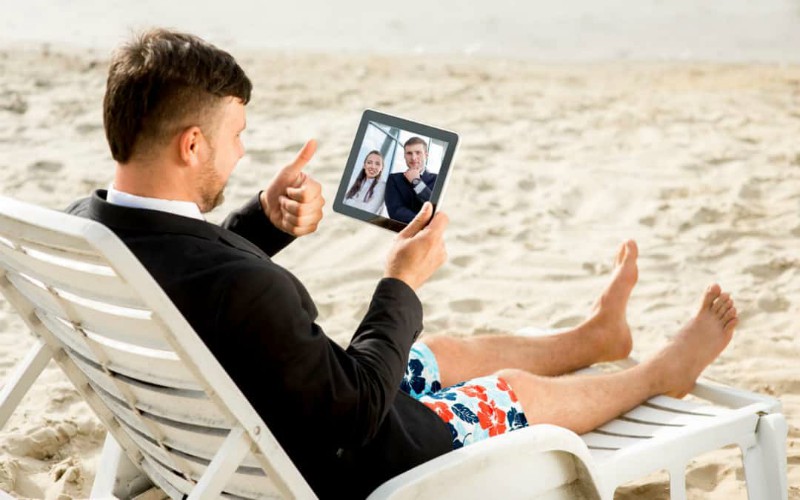The Future of Work

A few months back Trudy and I bumped into an upbeat couple of Americans in a Caribbean hideaway on Antigua. And since then we’ve kept in Zoom touch before we can reconnect in person. Alan’s been a source of inspiration given his lifelong passion for leadership, coaching and challenging thinking – aided and abetted by good-wife Lesley.
I asked him for some top of mind (arbitrary!) thoughts on the Future of Work. Here they are:
1) Clothing optional except during Zoom Meetings
2) Privacy is toast.
3) People will need to figure out how to make sales and new contacts by building relationships virtually.
4) No one set of facts will be accepted by the majority of people for a long time. Fox has permanently changed the character of News to something akin to propaganda. Organisations will need to endorse a trusted source.
5) For the next 12 to 24 months, or until a proven vaccine, many people will be afraid to travel or leave their safe spaces so that many types of travel, retail and restaurant sales will remain depressed.
6) A V shaped recovery will not happen because many folks will be seriously in debt or even bankrupt. Major trouble still looms for the public sector, universities, real estate and all travel related and restaurant industries. As a result, employment will creep up due to additional lay-offs in those sectors, not jump up. This will be in most socio-economic classes, not just among the poor.
7) Downtown restaurants survive through catering services to offices. Lessened catering and social distancing will put them in dire straits.
8) Real Estate:
a. Offices will use existing space for now because of social distancing but the lease cost per person will nearly double. Long term, fewer square feet will be needed as more people work remotely and new solutions are found to decrease square footage needed per person.
b. Retail will use existing space for now, setting up one-way aisles and social distancing for payment. Retail rents must go down immediately as sales will go down and even then many tenants will not survive (small businesses and chains).
9) Gains in delivery services will continue for now but decrease once people go back to work as no-one will be home to safely accept packages unless customers use remote camera/locking/unlocking devices.
10) IT will need to find ways to monitor off-site computer use without being intrusive. Confidentiality must be protected.
11) Also depressing back to work efforts will be the dangers involved in commuting by public transportation including not only subways and buses but also Lift and Uber. The uptick in bicycle riding will not last because of weather related issues.
12) Vacations are anyone’s guess; perhaps the safest will be single dwellings close to major metro areas. That said, people are itching to get out of their homes and feel a sense of normalcy. The question will be how satisfying these vacations will be.
13) AirBNB and other nightly rental services will tank, especially in large cities. Key to their resurgence will be resumption of foreign tourism. In many areas, that will also cause rental rates for apartments to drop as they will no longer be converted to hotel rooms.
14) Fewer people will retire due to economic uncertainty and drops in portfolios. As that moves through the workforce, a whole group of young people will be unable to find steady jobs in their area of interest.
15) Students will continue to suffer. Teachers, many of whom are older, are concerned about returning to work. Parents are afraid of introducing the virus to their families through their children socialising. Many students will defer going to colleges and universities and this will disadvantage the following year’s classes as fewer spaces will be available. If smart, colleges and universities will find a way to at least bring seniors back to campus. They normally are in classes with fewer students and these classes can be relocated to the larger classrooms. All can be offered single rooms on campus. Sports will remain a big question mark. Athletes must be housed on or near campuses to be effective. Schedules will need to be changed to avoid excessive travel.
Thank you Mr Berson (Author of: “Leadership Conversations: Challenging High-Potential Managers to Become Great Leaders”).
KR


